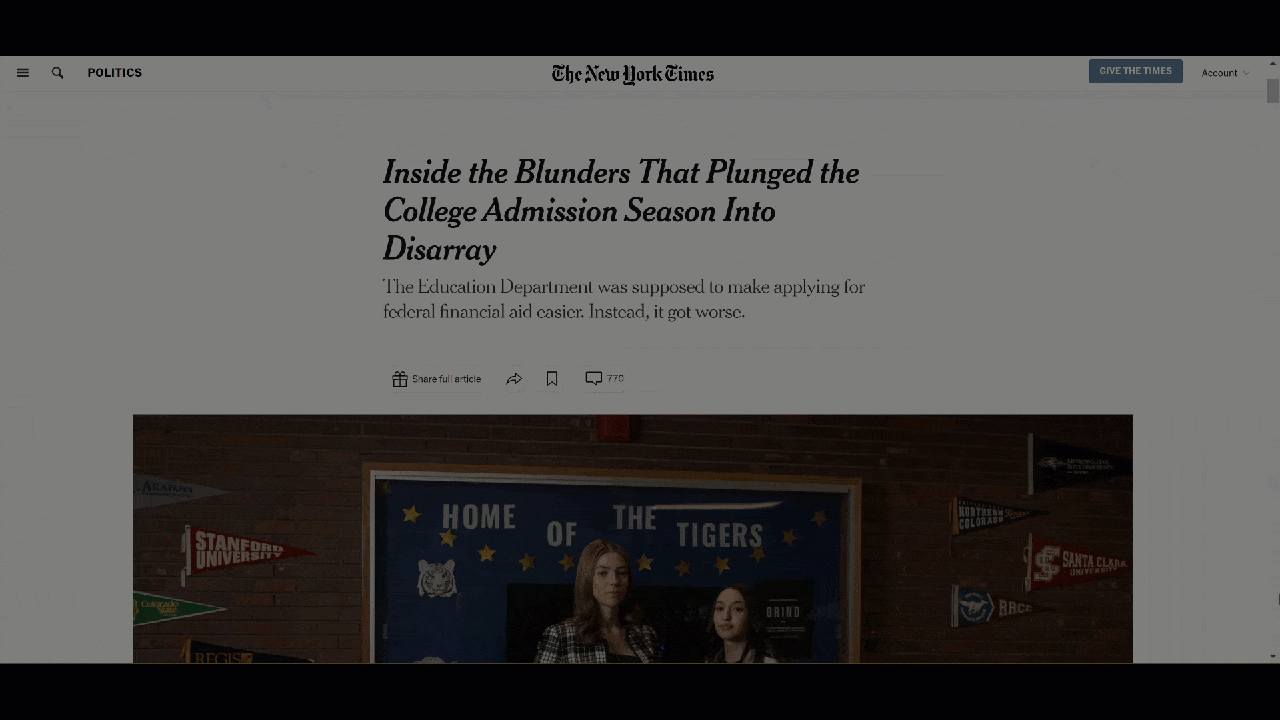The FAFSA Fiasco: A Closer Look at the Education Department's Missteps

In a recent article published by The New York Times, the chaotic rollout of a new version of the Free Application for Federal Student Aid (FAFSA) has been brought to light. The ramifications of this misstep have sent shockwaves through the educational community, leaving millions of students and thousands of schools in a state of uncertainty.
The article reveals a troubling discovery made by Education Department officials just days before a crucial deadline: 70,000 unread emails containing essential data from students across the nation. This revelation prompted a frantic three-day effort by over 200 employees to manually extract the necessary information, highlighting the dire consequences of the botched FAFSA rollout.
At the heart of the issue lies the failure of the Education Department to successfully implement a revamped FAFSA system aimed at simplifying the application process. Despite promises of a more accessible form with fewer questions, the reality has been far from ideal. Technical malfunctions, delays in launching the website, and a lack of adequate preparation have left students and schools grappling with uncertainty and frustration.
The consequences of these shortcomings are significant. Many students, particularly those from underserved communities, are left in limbo, unable to make informed decisions about their future due to delays in receiving financial aid offers. Schools, too, are feeling the impact as they struggle to assemble aid packages without crucial information from the government.
One particularly concerning aspect of the rollout is its disproportionate effect on marginalized communities. Black, Latino, first-generation, and low-income students are among the hardest hit, with fears that many may simply give up on pursuing higher education altogether.
In response to mounting criticism, the Education Department has attempted to address the fallout from the FAFSA delays. Measures such as deploying staff to provide technical support to affected colleges have been introduced, but questions remain about the adequacy of these efforts in addressing the scale of the problem.
As the investigation into the FAFSA rollout unfolds, it is essential to hold accountable those responsible for its shortcomings. The stakes are too high to ignore the systemic failures that have left countless students and schools in a state of uncertainty.
As members of the ACCFS, we have a responsibility to help families hold the Education Department accountable for its failures. Our clients shouldn't bear the brunt of bureaucratic incompetence. It's incumbent upon us to demand more transparency, accountability, and swift action to rectify the issues plaguing the FAFSA system.
In conclusion, the FAFSA fiasco serves as a sobering reminder of the importance of advocating for streamlined and efficient processes in higher education. As members of the ACCFS, let us unite in our efforts to address these challenges head-on and ensure that our college-bound families have access to the support they need to succeed.
Stay informed, stay engaged, and let's work together to make a difference.
READ THE ARTICLE FROM THE NY TIMES:
https://www.nytimes.com/2024/03/13/us/politics/fafsa-college-admissions.html?unlocked_article_code=1.ck0.qdXS.eQQXFKR9nvkV&smid=url-share
Posted by Ron Them
He is a former Chief Financial Officer of a Fortune 500 company and currently owns his own financial advisory company specializing in cash flow planning for business owners and executives. He developed the Cash Flow Recovery™ process that uses cash flow management principals to increase asset value and build wealth for business owners.
He is also the originator of several software calculators to help advisors and families make college affordable, including:
* College QuikPlan EFC Calculator
* "Find the Money" College Cash Flow Calculator
* College Debt Reduction Calculator
Ron has been quoted in U.S. News and World Report, Kiplinger's Personal Finance, Smart Money, Financial Advisor Magazine, Small Firm Profit Report, Practical Accountant, LIMRA's Market Facts, Senior Advisors Magazine, HR Magazine, BenefitNews.com, Employee Benefit News Magazine, ProducersWeb.com, Entrepreneur Magazine, Insurance Selling Magazine, CollegeNews.com, The Christian Voice, and Columbus CEO Magazine.
